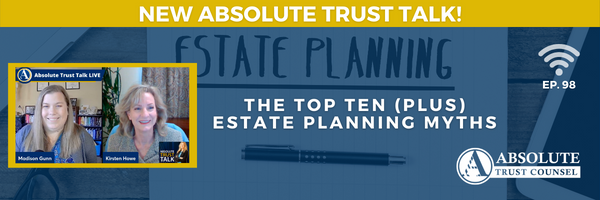
For this four-part series, we are discussing very common scenarios that we see in our trust administrations where real estate is involved. Real estate, particularly the family home, often has emotional and sentimental components that can throw a wrench in trust administrations. Beneficiaries often have conflicting ideas of what to do with the family home. We will continue using the…

Real property is often the most complicated trust asset for trustees to manage. Trustees often want to do their best while also pleasing the beneficiaries, who are often their siblings or family members, and still follow the terms of the trust. This four-part series will discuss common scenarios in our trust administrations involving real estate. To begin this discussion, some…



Effective January 1, 2022, California Probate Code Sections 15800 and 16069 are amended by Assembly Bill 1079. The change in law affects Trustees who assume their role when the settlor or trustor (the creator of the trust) becomes incapacitated. Typically, the person or persons who create a revocable living trust hold the power to be able to revoke the trust.…

In California, owning assets in a revocable trust enables your family to avoid probate, a court process used to transfer assets to beneficiaries of a will or the decedent’s heirs. One of the main reasons to create a trust is to avoid probate. Unfortunately, more often than we would like, when we assist clients with trust administration after the death…
